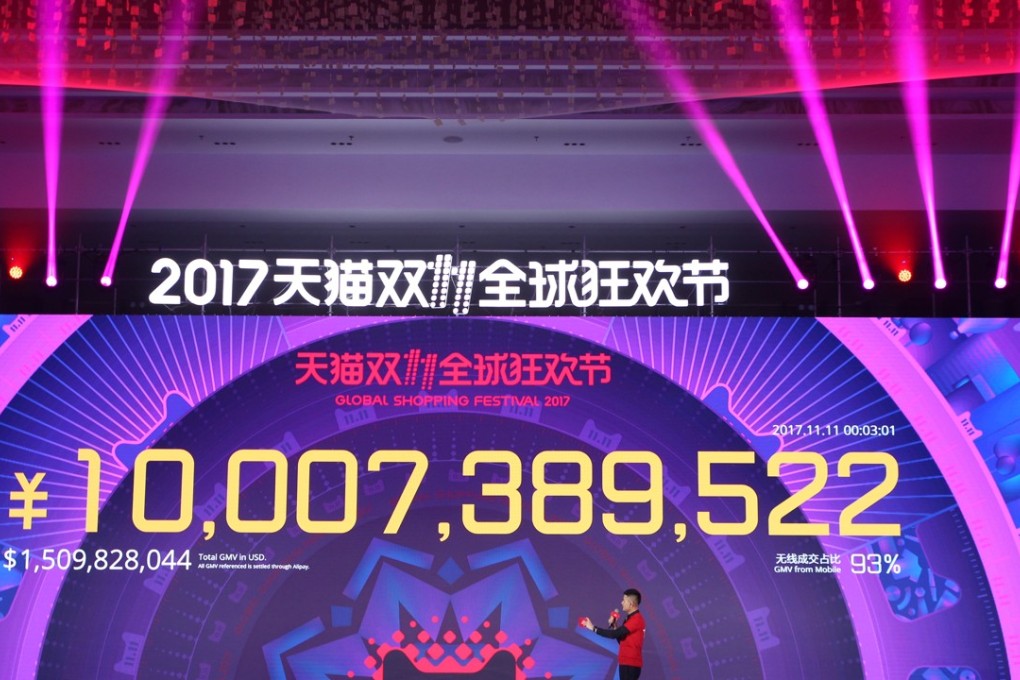Alibaba smashes sales record for world’s largest online shopping spree
Nicole Kidman and footballer Luís Figo star in Shanghai gala to kick off 24 hour shopping festival

China further burnished its position as the leader in e-commerce and mobile payments as Alibaba Group took a little over 13 hours to smash its 24-hour annual November 11 consumer festival sales tally, now three times the combined sales of Black Friday and Cyber Monday in the United States.
The total gross merchandise volume (GMV) - or the amount of sales transacted on Alibaba’s e-commerce platforms on November 11 this year – was 168.2 billion yuan (US$25.3 billion), compared to US$18.1 billion last year.
An early glimpse of that buying fury was seen as consumers spent 10 billion yuan in only three minutes on Alibaba’s e-commerce platforms after the shopping spree kicked off at midnight – half the time it took to breach that mark last year. Mobile transactions accounted for 90 per cent of the sales so far for this year’s event, compared with the 85 per cent for the whole day average in 2016.

“168.2 billion yuan sales is not only a record in China, but also a record worldwide,” said Alibaba chief executive Daniel Zhang Yong.
“The number of orders placed on Alibaba platforms reached 777 million as of 23:30pm.